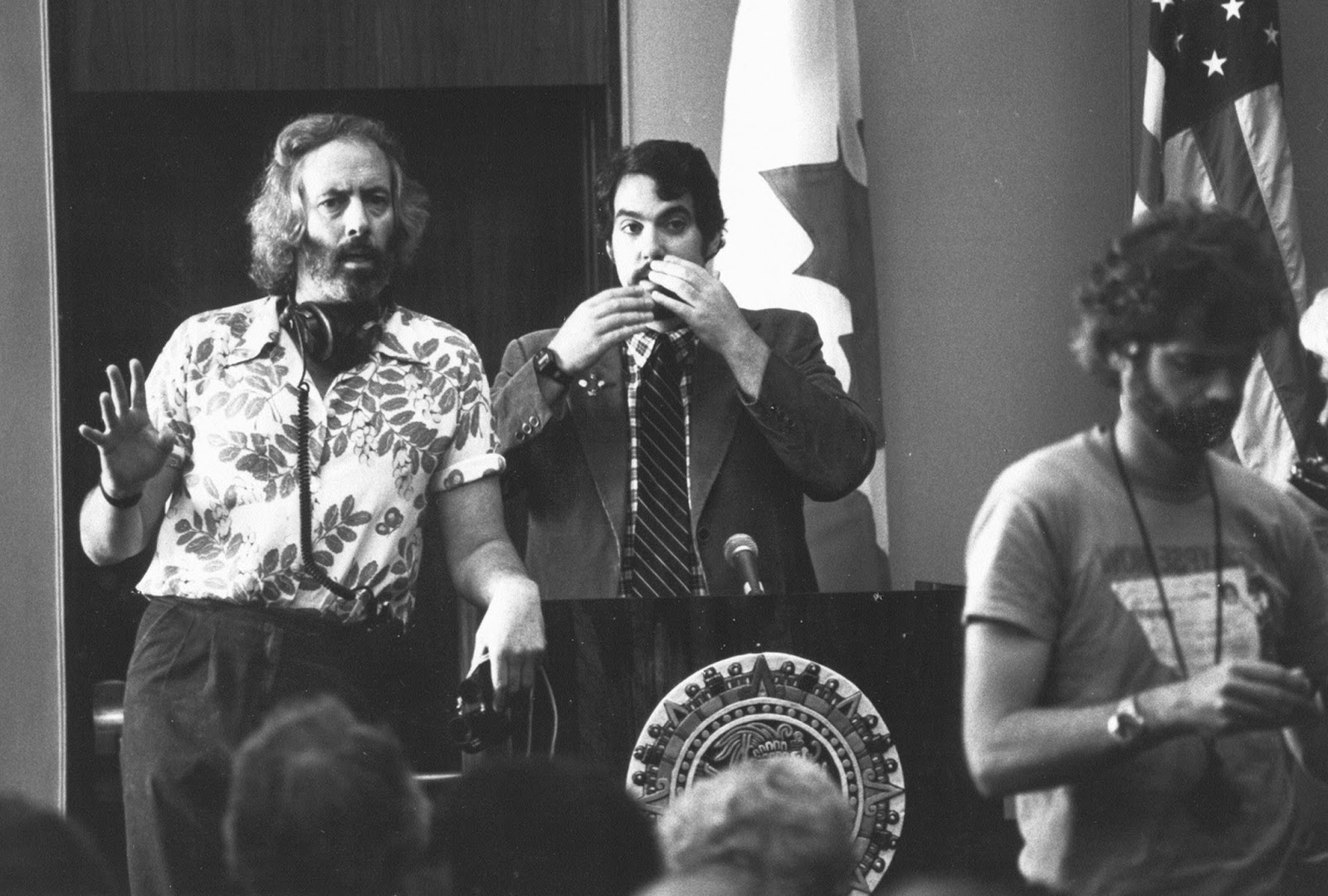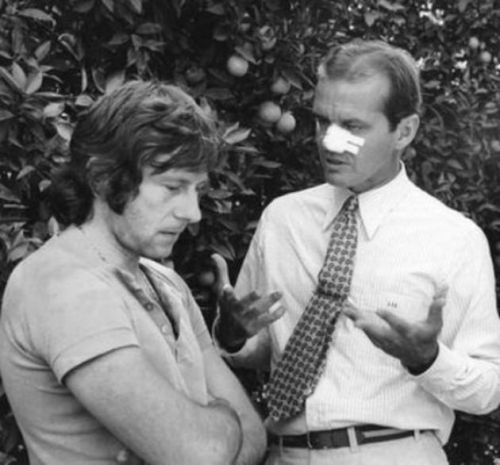The opening of Kenneth Turan’s 1988 New York Times profile of Robert Towne, one of Hollywood’s all-time greatest screenwriters, who had been suffering through his professional and personal worst, and was angling for a career renaissance:
PACIFIC PALISADES, Calif.— Half a dozen years ago, Robert Towne, the Oscar-winning author of Chinatown, The Last Detail and Shampoo, hit bottom with a noticeable, almost cinematic thud. Alternately battered by ”a hideous custody battle” with his ex-wife, by the death of a dog he was ”shamelessly attached to,” and by a debilitating series of studio battles over his first directorial effort, Personal Best, and his script for Greystoke, he ”walked out on a desolate beach filled with garbage from Santa Monica Bay and felt I had nothing left.”
”There was a guy on the beach with his wife and he came up to me and said, ‘Excuse me, but we made a mistake. We came out here but because of a bus strike, our transfer tickets don’t work and we can’t get back downtown. Can you help us?’ I reached into my pocket and gave him all the money I had.
”I realized that that was the best thing anybody could have done for me. I was feeling completely impotent, and here on this beach was one guy I could do something for. It made me feel that I was not completely useless, that somehow things would be O.K.”
If Mr. Towne’s life were indeed a script, that turnaround would have been effected in an It’s a Wonderful Life twinkling. But its reality is that it has taken him six years to be sitting where he is, newly moved into the cozy den of a rambling Normanesque pile in Ronald Reagan’s old neighborhood in Pacific Palisades. He is remarried, has joint custody of his 10-year-old daughter, two new dogs and a new film that he’s written and directed, Tequila Sunrise, which opens on Friday. Yet not only are echoes from what, he says, ”the Irish would refer to as ‘the troubles’ ” very much with him, they in fact provided one of the underpinnings for his new project.
”Anytime you’re involved in legal matters, as I was with my divorce and Personal Best, you feel like a criminal, which made it particularly easy to identify with McCussick,” Mr. Towne says of Sunrise’s protagonist. Played by Mel Gibson, Dale McCussick is a longtime drug dealer who is desperately trying to get out of the business. His best friend since high school, Nick Frescia (Kurt Russell), also has a more than nodding acquaintance with drugs; he is a cop who’s just been named head of narcotics for Los Angeles County. And both men have the most passionate of interests in Jo Ann Vallenari (Michelle Pfeiffer), the hostess of a trendy South Bay restaurant.
”It’s a movie about the use and abuse of friendship,” Mr. Towne says. ”It’s natural to have occurred to someone who has close friends in Hollywood. People in the movie business don’t hesitate to say: ‘We go back a long way. You owe me one.’ I owe you one what?”
As with Chinatown, Mr. Towne has chosen to make his points within the framework of an elaborately plotted melodrama. ”I think melodrama is always a splendid occasion to entertain an audience and say things you want to say without rubbing their noses in it,” he says. ”With melodrama, as in dreams, you’re always flirting with the disparity between appearance and reality, which is a great deal of fun. And that’s also not unrelated to my perception of my life working in Hollywood, where you’re always wondering, ‘What does that guy really mean?”’
With his close-cropped salt-and-pepper beard, tousled graying hair and soft, almost hypnotic voice, the 53-year-old Mr. Towne could pass for a particularly potent counterculture guru, and, in fact, in an industry starved for wise men, he is often cast in that role. His near-legendary uncredited contributions to scripts other people wrote include restructuring Bonnie and Clyde and creating the Al Pacino-Marlon Brando tomato-garden scene in The Godfather, which Francis Coppola acknowledged in his Oscar acceptance speech.•


